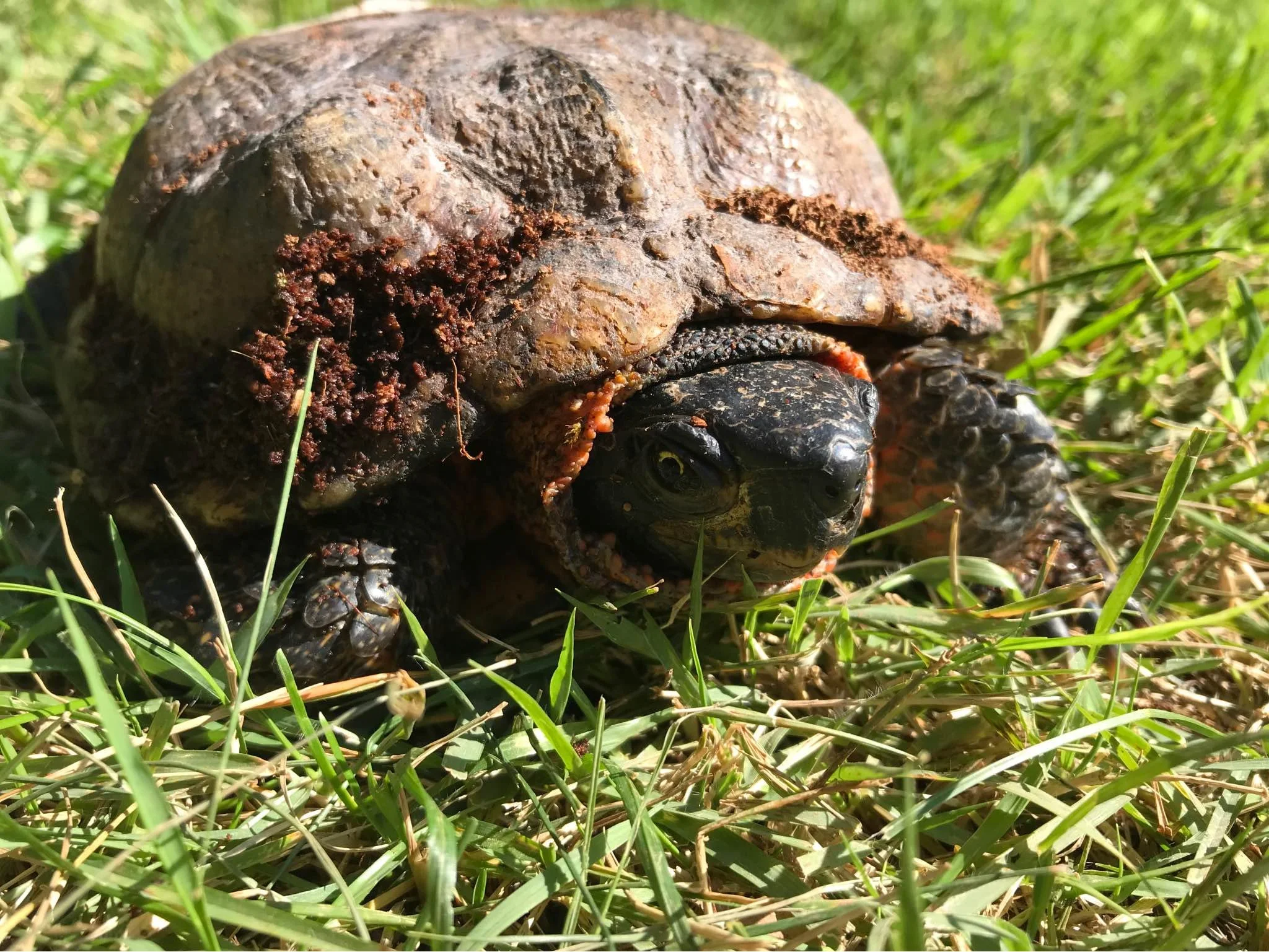Macaroni the Wood Turtle
Hatched: Suspected 1970s
Arrived at WSWC: September 16, 2021
Sex: Male
Known as one of the most handsome turtles on the planet, Mac the Wood Turtle definitely has a big personality to match his good looks! Macaroni arrived at WSWC in September 2021 with a complete fracture on his plastron (bottom shell) from one side of his body to the other. The shell remains in place thanks to its attachment to soft tissue, but sadly, the shell can no longer do its job of protecting Mac’s internal organs. This leaves him vulnerable to becoming stuck on debris in the wild. Wood Turtles are a species of special concern in PA, making Mac an important ambassador for his wild friends. He educates people on the dangers of removing turtles from the wild to keep as pets and turtle habitat loss.
About Wood Turtles
Size: Typically range from 5 - 10 inches long with males being larger than females
Lifespan: Wood Turtles generally live 50 - 90 years in the wild. Lifespans in captivity are often shorter
Diet: Wood Turtles are omnivorous and eat a variety of vegetation, fruits, insects, carrion (decaying flesh of dead animals) and fungi
Reproduction: Adolescents reach sexual maturity between 14 - 20 years old. Nests generally consist of six to eight eggs. Unlike many other turtles, the gender of hatchlings is not dependent on the temperature of their eggs in the nest.
Range: Wood Turtles are most often found in riparian habitats (the area between bodies of water and the forest). They are semi-aquatic, spending time in the water and on land. Wood Turtles can be found across the Northeastern U.S. from Virginia to Canada.
Other Facts: To lure their favorite earthworm snacks to the surface, Wood Turtles will stomp their large feet on the ground. Wood Turtles have been shown to solve mazes and learn new tasks just as well as rats in a lab setting. While most of their summertime is spent on land, Wood Turtles spend the winter brumating (like hibernation) in deep pools and streams. Habitat loss, fragmentation,and poaching for the pet trade are the largest threats to vulnerable Wood Turtle populations in the wild.


